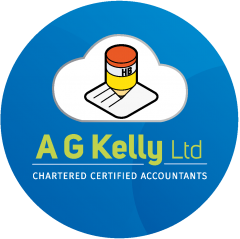Make sure you’re aware of new CGT requirements and finance cost restrictions for residential properties.
Capital gains tax (CGT)
For UK residents, there is another change in payments of CGT for disposals made on or after 6 April 2020. Return and payment of CGT has to be paid within 30 days following the completion day for UK land (including buildings) when there is a charge to CGT. This change may cause a substantial cashflow difficulty for landlords in the short term.
If your client is already within self-assessment and has to complete one, you will need to ensure that the gain is also included on their self-assessment tax return; HMRC will be amending the self-assessment return to allow you to do this.
How to calculate capital gain on disposal of residential property:
The self-assessed calculation of the amount payable on account takes into consideration unused losses brought forward or in the same tax year and the person’s annual exempt amount, whereas any anticipated losses on future disposals cannot be taken into account. The rate of tax for individuals is determined after making a reasonable estimate of the amount of taxable income for the year.
Once the provisional calculation has been submitted and the tax paid, it cannot be reduced (for example, because your client made a capital loss later in the year) until the client submits their self-assessment return. Failing to meet deadlines for submission and payment will trigger penalties.
The provisions are contained in Schedule 2 of Finance Act 2019. Some of the main points are as follows:
- These changes to capital gains tax apply to the following (subject to some limited exclusions). Schedule 2 Part 1 1(1) states that the schedule applies to:
- ‘Any direct or indirect disposal of UK land which meets the non-residence condition (whether or not a gain accrues) and which is made on or after 6 April 2019, and
- Any other direct disposal of UK land on which a residential property gain accrues and which is made on or after 6 April 2020.’
CGT payable on residential property and carried interest is 18% and 28% as opposed to normal capital gain tax rate of 10% and 20% respectively for basic and higher rate taxpayers.
As highlighted within Agent Update March 2020, ‘To enable customers to report and pay any CGT liability arising from gains on the sale of a property HMRC are developing a new digital service accessible from GOV.UK, which will be available from April 2020 to make it easier for customers to report and pay their CGT property disposal liability.’
Finance cost restrictions
Since 6 April 2017, landlords are no longer able to deduct all of their finance costs from their property income to arrive at their property profits. Instead, they receive a basic rate reduction from their income tax liability for their finance costs. Year to 5 April 2020 will be the final year when 25% of finance cost is allowed in full, whereas 75% of the finance cost is used as a tax reducer. From 6 April 2020 no finance cost is deductible when computing property income and losses, and 100% finance cost is used a tax reducer.
Finance costs include mortgage interest, interest on loans to buy furnishings and fees incurred when taking out or repaying mortgages or loans. No relief is available for capital repayments of a mortgage or loan. You may find these examples useful for understanding how do these changes impact on your client’s tax position.
The following won’t be affected by the introduction of the finance cost restriction:
- UK resident companies
- non-UK resident companies
- landlords of furnished holiday lettings.
This rate restriction pushes more landlords into the higher rates of tax and make the renting properties business uneconomical.
